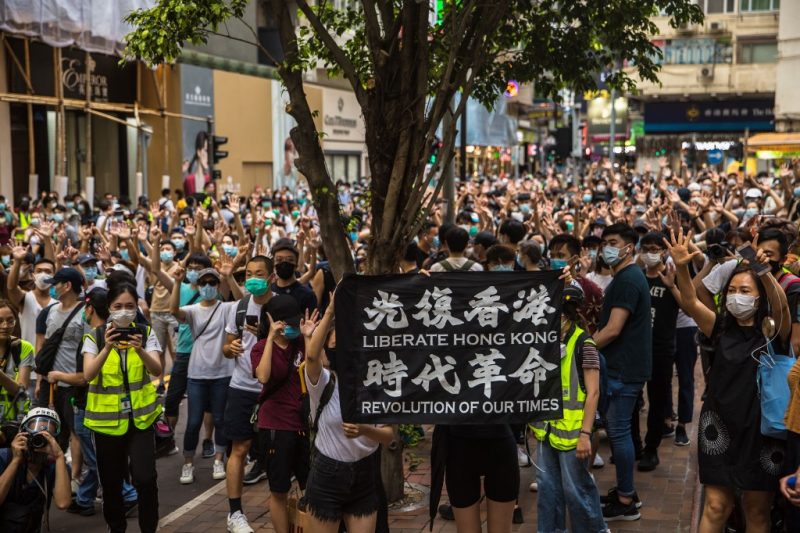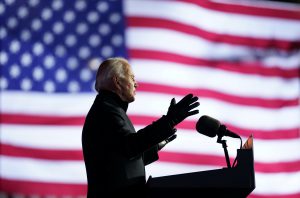(AF) June 30 was the 99th birthday of the Chinese Communist Party, but cadres are finding it hard to celebrate as a new rash of measures to curtail Beijing’s high tech and telecom firms was announced.
China Huangqiu news said the “American black hand has made more moves to suppress Chinese companies”. In China, ‘black hand’ means mafia.
The US Federal Communications Commission (FCC) said on Tuesday June 30 that China’s Huawei and ZTE have been listed as “US national security threats”.
That decision prohibits telecom operators from getting government funds to use services and equipment from these two Chinese companies.
As yet neither firm has responded to the news, which comes as no surprise. The move echoes a Chinese Communist Party order that all state offices must remove foreign hardware and software in December 2019 – which hit major US firms including Microsoft, Dell and HP.
Similarly, the ban imposed by India this week on Chinese apps echoes China’s long-term ban on many foreign websites and apps under its ‘Golden Shield’ project, better known as ‘The Great Firewall of China’.
With Huawei and ZTE now designated as threats to US national security, it can be expected that other firms such as China Mobile, China Telecom and China Unicom could suffer the same fate, as they are already under US government scrutiny.
Huangqiu said: “Although no evidence was provided, it is reported that the chairman of the US Federal Communications Commission, Ajit Pai, claimed in a statement issued on Tuesday that Huawei and ZTE brought national security risks to the US communications network and the future of 5G.
Pai also stated: “Both companies have close ties with the Chinese Communist Party and the Chinese military, and both companies are subject to Chinese laws and are obliged to cooperate with Chinese intelligence agencies.”
Both firms were formed from telecommunication regiments of the Chinese People’s Liberation Army (PLA) as part of a downsizing of the Chinese military under reforms launched by former leaders such as Deng Xiaoping and Jiang Zemin.
The FCC move stops telecom operators from purchasing network equipment from the two companies through the $8.3 billion Universal Service Fund government subsidy fund. In November last year, the FCC voted to ban telecom companies from using federal funds to purchase equipment from Huawei, but the final order came into effect on Tuesday.
Both companies have repeatedly denied that they pose a threat to US national security.
Chinese Foreign Ministry spokesman Zhao Lijian, in November, urged US politicians to abandon prejudice and truly abide by market principles. He said they should stop politicising economic issues on grounds of national security – stop making unreasonable accusations and suppressing Chinese companies, and do more to boost bilateral trade and mutual welfare.
Netease, meanwhile, reported that the “sword fight” between China and the US continues.
Hong Kong Trade Favours Axed
In a further blow to Chinese interests, the US Department of Commerce said it had cancelled the “special treatment” for Hong Kong, including export licence exemptions.
Previously, Hong Kong was able to import sensitive technologies and other products and services denied to, or very hard to get, in mainland China.
Netease – an internet technology company that focuses on content and services – claimed that India and the US had teamed up to block China at the same time, and their intentions are “extremely obvious”, which was to join forces to curb China with far-reaching effect.
“This symbolizes that confrontation with China in the future has become a common demand of the diplomatic relations between the United States and India.”
Netease urged its readers not to panic, saying: “It’s going to rain, mother is going to marry someone. However, we should not ‘let it go’, but should face the pressure and face it positively!”
Netease said the US high-tech export ban meant that China would accelerate its “import substitution strategy.” This was shown in recent news in which Huawei, SMIC and Shanghai Micro Electric are teaming up in a bid to create top-quality chips for mobile phones and computers.
“Some people have an excessively pessimistic attitude towards import substitution. This is unnecessary and pessimism is useless. A country and a person are somewhat similar. In the course of development, they will always encounter bumps on the road. Some bumps must be taken by themselves. Even if we fall into the river temporarily, we have to climb up and continue to walk,” it wrote.
The government had already psychologically prepared for the huge impact that China’s export-oriented economy may suffer in the era of “de-globalisation” by encouraging companies to “replace exports with domestic sales”, the website stated.
There were many other economies in the world, it said, and these still hoped and needed to interact and cooperate with a more open China. “Now, our financial and other fields have increased their opening up to foreign capital; our Hainan trade port has opened its doors and China is most open now since the reform and opening up began,” Netease wrote.
The website also gave its readers lots of personal advice, such as decreasing debt, lowering expectations for investment income, whether it is the property market or the stock market.
• Chris Gill
This report was upgraded on June 16, 2022 to meet new style standards and the headline amended.
























